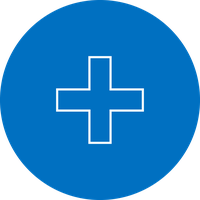
ITEA Impact story
MoSHCA

Mobile and Smart Healthcare Assistant





Impact highlights
- After the MoSHCA project, Evalan has experienced a growth rate of 100% each year, in 2016, 2017 and 2018. This growth is reflected in all metrics – employees, turn-over, profitability etc. During that period Evalan has added 40 FTEs to its payroll. Evalan expects that growth will continue in 2019. The technology Evalan developed within the context of the MoSHCA project greatly contributes to this growth as the same technologies are now used in other products.
- The Epilepsy App, developed by CLB Research and Sound Intelligence on the basis of MoSHCA technology, is now being used to monitor 2000 patients at the Dutch ’s Heeren Loo care group (ten-year contract). Three big care groups – ‘s Heeren Loo, ASVZ and Baalderborg Groep - are currently using the Sound Intelligence algorithm to detect snoring. In addition, around 30 healthcare institutions – including the mentioned care groups and hospitals like Prinses Maxima, Zuyderland, Elkerliek and Zaans Medical Centre - are using the CLB Messenger’s “critical messaging core” to distribute alarms from medical devices to nursing staff.
- The project resulted in two patents in the areas of hypertension and COPD (Chronic obstructive pulmonary disease) care.
There is a dramatic increase in the number of persons worldwide experiencing chronic disease like diabetes,
which affects approximately 350 million people and is projected to become one of the world’s main disablers
and killers within the next 25 years. The impact of chronic diseases is evident: it has been estimated that
over the next 20 years the cost of five of the major chronic illnesses could reach $47 trillion and in 10
years claim almost 400 million lives. The ITEA 2 MoSHCA project was geared to improving patient-doctor
interaction and controlling chronic diseases, developing technological set-ups that significantly improve
the self-management of chronic illnesses, promote communication between the patient and the health provider,
and support health staff in providing better clinical follow-up.
Project results
The MoSHCA solution typically involves a number of body and other sensors that communicate wirelessly with a smartphone, transmitting relevant physiological and activity data such as different cardiac and vascular information, glucose levels, etc. The intelligent MoSHCA software installed on the mobile terminal receives this information, along with subjective patient generated data such as pain and mood levels, stiffness, medication taken, etc. With context-awareness and interoperaility as key features, the technology was tested in medical environments with real patients and valuable feedback was gained from these patients and their care providers. The reliability and energy consumption of medical sensors were improved and a better understanding gained of the balance of the privacy and security needed for healthcare data-mining and data communications, along with the systematic means to privacy and security assurance.
In addition, collaboration between the SME and academic participants enabled the facilitation of access to medical data and the appropriate adaptation of algorithms, leading to a high degree of user orientation. 7 use cases in the areas of mobility, general health, hypertension, COPD, baby monitoring and epilepsy, were performed resulting in tangible products.
Exploitation
Key software technology developed by Evalan within the project is incorporated in SensiStep, a rehabilitation support application being used in the Netherlands, Belgium and Sweden, whereby people recovering from certain types of leg or hip fractures have to perform partial weight-bearing exercises. SensiStep provides dynamic support and shows the actual weight that is exerted on a leg continuously and in real-time. This means that both the patient and the physiotherapist can monitor whether the rehabilitation is progressing on track, or if the exercise programme needs to be adjusted accordingly.
CLB Research and Sound Intelligence developed an individually tuneable sound recognition system and exploited the MoSHCA technology in an Epilepsy App. This is the first (mobile) product that can detect sounds affiliated with epileptic seizures and is able to alert care providers to on¬going seizures without using physical sensors attached to the patient’s body with the added benefit of comfort, as no sensors are attached to the patient.
Actimage developed a unique know-how that allows predictive algorithms to function autonomously on smartphones. This technology enables the deployment of personalised algorithms on patients' smartphones and is a relevant advance towards personalised medicine. Actimage exploits MoSHCA results in three applications: Actelin, a mobile application for diabetics, ActiHomePro, a smartphone application for day-to-day management for healthcare professionals working in patients’ homes, and Hol’Autisme that offers a first catalogue of mixed-reality applications to improve the social skills of children with autism.
At the Radboud University Nijmegen, a new system for predicting exacerbations for COPD patients at home was developed. This app enables self-monitoring of COPD patients, by providing automatic recommendations to patients and will be marketed by MonitAir.
The University of Girona developed the intelligent algorithms of Care Me At Home, a mobile app that enables premature babies to be monitored at home via wireless sensors. Currently, there are 30-35 new-borns under a discharging programme at home per year and it is expected to increase up to 40-45 in 2019. The reasoning module for premature babies has been developed in collaboration with the clinical staff of the Institut d’Investigació Biomèdica de Girona Dr. Josep Trueta and is protected by the Catalan Intellectual Property Office.
More information
Download MoSHCA impact storyRelated projects
MoSHCAOrganisations
Actimage (Luxembourg)CLB Research BV (The Netherlands)
Evalan BV (The Netherlands)
Institut d’Investigació Biomèd…
Radboud University (The Netherlands)
Sound Intelligence BV (The Netherlands)
University of Girona (Spain)

